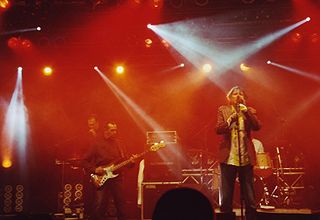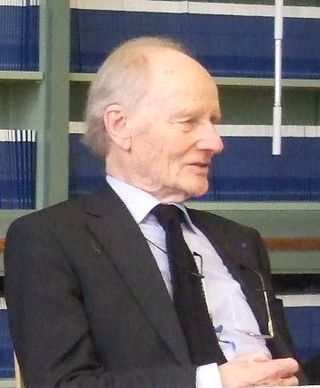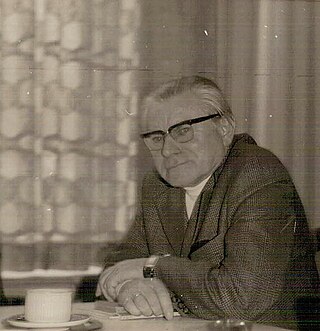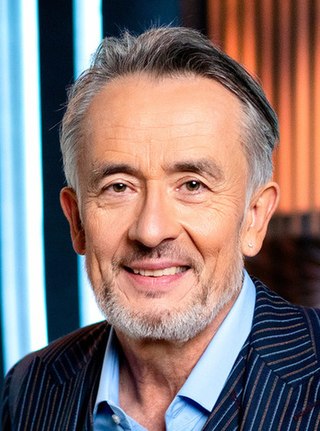Gian Domenico Borasio | |
|---|---|
| Born | 9 July 1962 |
| Nationality | Italian |
| Occupation | Doctor |
Gian Domenico Borasio (born 9 July 1962 in Novara) is a physician specialist of palliative medicine. He is professor of palliative medicine at the University of Lausanne and head of the Service of Palliative Care of the University Hospital of Lausanne (Switzerland). [1] [2]
Dying is the final stage of life which will eventually lead to death. Diagnosing dying is a complex process of clinical decision-making, and most practice checklists facilitating this diagnosis are based on cancer diagnoses.

Ernst Klee was a German journalist and author. As a writer on Germany's history, he was best known for his exposure and documentation of medical crimes in Nazi Germany, much of which was concerned with the Action T4 or involuntary euthanasia program. He is the author of "The Good Old Days": The Holocaust Through the Eyes of the Perpetrators and Bystanders first published in the English translation in 1991.

Fehlfarben is a Neue Deutsche Welle music band from Düsseldorf, Germany, that was formed in 1979. Its founding members were Peter Hein (vocals), former member of the German punk band Mittagspause, Thomas Schwebel, Michael Kemner, Frank Fenstermacher, Markus Oehlen and Uwe Bauer.

Robert Spaemann was a German Catholic philosopher. He is considered a member of the Ritter School.

Otfried Höffe is a German philosopher and professor.

Altomünster is a municipality in the district of Dachau in Bavaria in Germany.

Arnold Stadler is a German writer, essayist and translator.

Achim Peters is a German internist and brain researcher. He developed the Selfish Brain Theory.
Michael Nehls is a German doctor of medicine, author, and former cyclist. From 1983 until 1989 he studied medicine at the universities of Freiburg and Heidelberg. In 1997, he achieved his postdoctoral lecture qualification in molecular genetics. Nehls authored over 50 scientific publications, two of which were published with the Nobel Prize winners Paul Greengard and Martin Evans.

Eberhard Achterberg was a religious scholar, a journalist, a high-ranking Nazi official in the Amt Rosenberg and later a leading member of the German Unitarian Religious Community and school and university teacher.

Oliver Jens Schmitt is a professor of South-East European history at Vienna University since 2005. He is a member of the Austrian Academy of Sciences.

Volker Sommer is a German author, anthropologist, and Professor of Evolutionary Anthropology at University College London (UCL). His research focusses on the evolution of primate social and sexual behaviour, cognition, rituals, biodiversity conservation, animal rights and evolutionary ethics.

Franz Manfred Wuketits was an Austrian biologist, university teacher and epistemologist. He wrote extensively on epistemology, the history and theory of biology, evolution theory, evolutionary ethics, evolutionary epistemology and sociobiology.

AnnenMayKantereit are a German rock band founded in Cologne in 2011. Their songs are predominantly performed in German, but the band also publishes cover songs in English occasionally. A notable feature of the band's music is the distinct and rough voice of singer Henning May.

Lothar Zenetti was a German Catholic theologian, priest, and author of books and poetry. In Frankfurt, he was both a minister for young people and a parish priest. He was also active on radio and television. His songs, for example the popular "Das Weizenkorn muss sterben" and "Segne dieses Kind", appear in both Protestant and Catholic hymnals.
Norbert Frei is a German historian. He holds the Chair of Modern and Contemporary History at the University of Jena, Germany, and leads the Jena Center of 20th Century History. Frei's research work investigates how German society came to terms with Nazism and the Third Reich in the aftermath of World War II.

Gert Scobel is a German journalist, television moderator, author and philosopher.

Hans-Jürgen Hufeisen is a German recorder player and composer.

Hermann Bausinger was a German cultural scientist. He was professor and head of the Ludwig Uhland Institute for empirical cultural science at the University of Tübingen from 1960 to 1992. The institute has focused on the culture of everyday life, the history of traditions, and the research of narration patterns and dialects. His history of literature from Swabia from the 18th century to the present was published for his 90th birthday.

The Luxembourg question refers to the political tensions surrounding the (Grand) Duchy of Luxembourg, particularly in the 19th century, but also earlier in the late Middle Ages and the early modern period, when the present-day territory of the Grand Duchy of Luxembourg was ruled by different dynasties. The issue at stake in the Luxembourg question was the territorial affiliation and independence of Luxembourg, which was located between the Netherlands, France, Belgium and Germany.